Reuters Institute Digital News Report 2020 is here. The report tries to answer to this main question: how is news being consumed worldwide? It was conducted at the beginning of the current year using an online questionnaire. Also, Oxford University’s Institute took into consideration age, gender, region and education of over 80,000 respondents across forty countries worldwide.
At Directopub, we have gone through the entire document in order to understand the current state of digital news. Therefore, in this article, we summarize and analyze Reuters’ key findings. So, if you would like to learn more on the topic too, just keep reading.
The impact of Coronavirus
Even though most of the data was collected at the end of January and the beginning of February, parts of the survey were repeated before in April. This means that the report gives us an idea of the historic trends and, also, of the impact of the pandemic.
Coronavirus has clearly increased news consumption, but advertiser’s recession and print revenue dips are making it very difficult for publishers to take advantage of that.
On the one hand, television news and online sources have seen a significant spike in number of user’s.
On the other hand, lockdown has made impossible the distribution of printed newspapers. This also translates into an increase of the usage of social media as a source of news.
What the Reuters Institute Digital News Report 2020 found out.
1. Journalism has proven to be highly valuable.
The consumption of updated, reliable news is not about being informed anymore, but it is rather vital. Unfortunately, because of the above mentioned reasons, this does not translate into higher benefits for publishers. The current situation has forced them to work on new products and to focus more on subscriptions and memberships. This means that the relationship with advertisers is still very important, but readers are again in the centre of the strategy.
In fact, the research points out that there are “significant increases in payment for online news in a number of countries including the United states, where 20% pay for news (up 4 percentage points YOY), and Norway, where 42% pay (up 8 points)”.
Also, maybe because printed newspapers were not an option during the lockdown period, TV news regained importance.
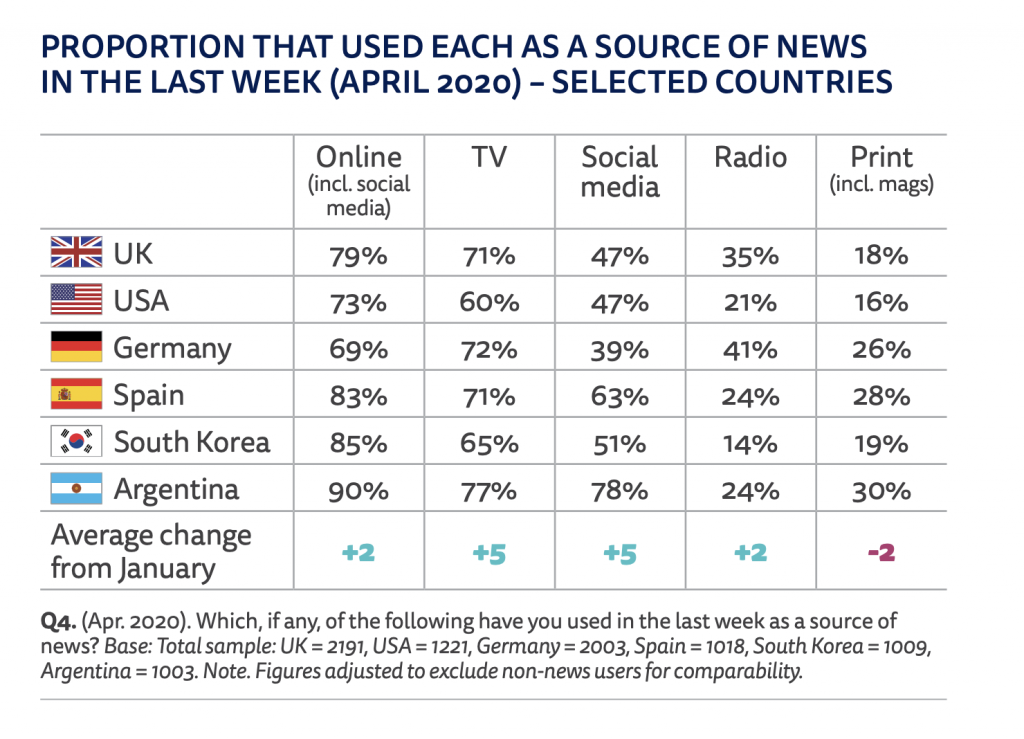
2. Trust is a fundamental issue.
While most people consider national news and news on search engines trustworthy, they perceive news coming from politicians and individuals as unreliable. This is particularly interesting because neither search engines nor social media companies create content themselves. It all comes from other sources (meaning mostly press and individuals).
An important factor here is also that people trust national news and national governments equally. This might lead media to become more critical with the government in order to highlight their independece.
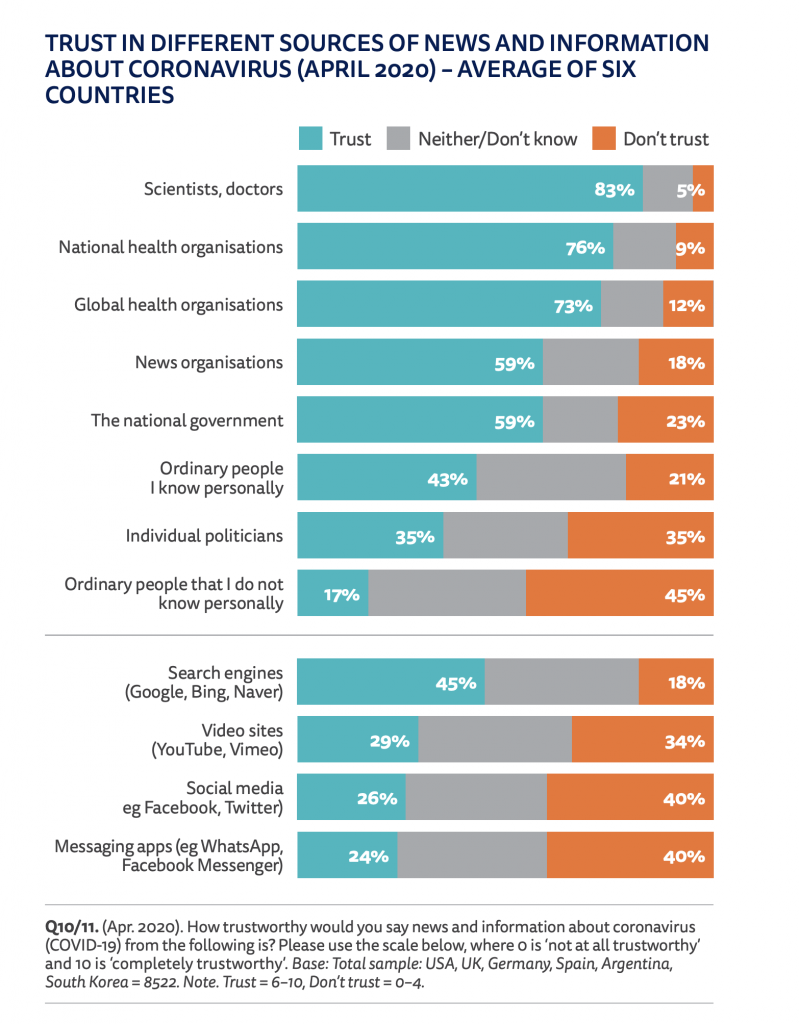
However, overall levels of trust in news keep falling.
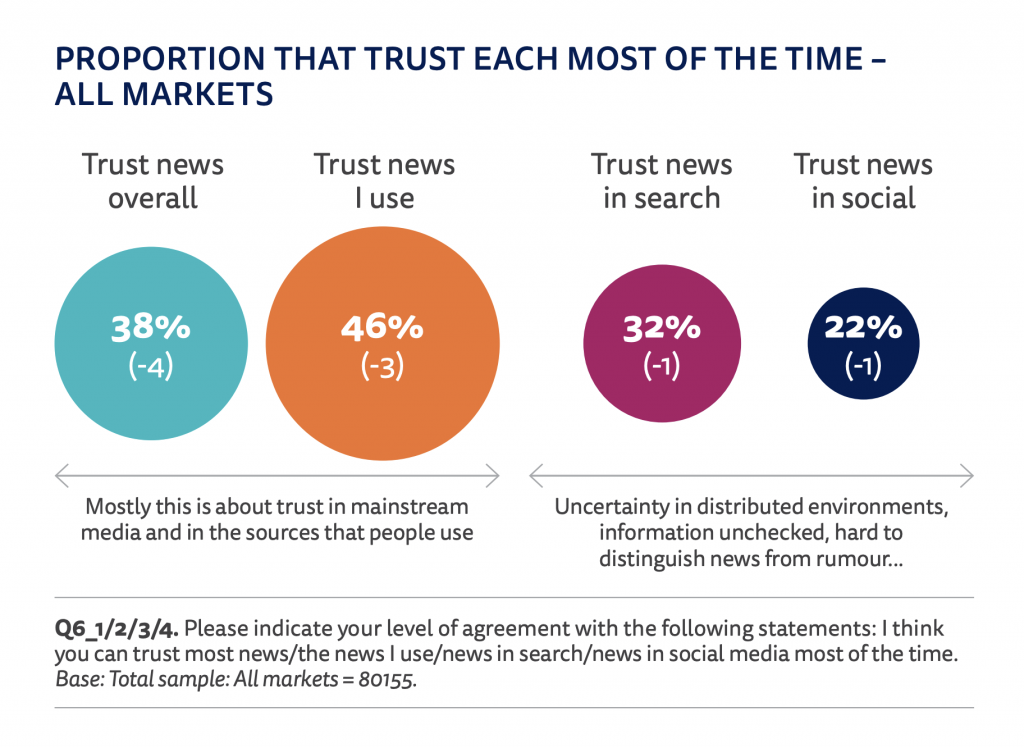
3. Misinformation and social media
Despite 40% of people think of social media as the main source of misinformation, 24% of the respondents of Reuters Institute Digital News Report 2020 claimed to use WhatsApp to “find, discuss, or share news about COVID-19”. Also, Instagram and Snapchat became popular sources of information among young people. Like the study points out, this suggests that people trust their own ability to discriminate between fake and real news.
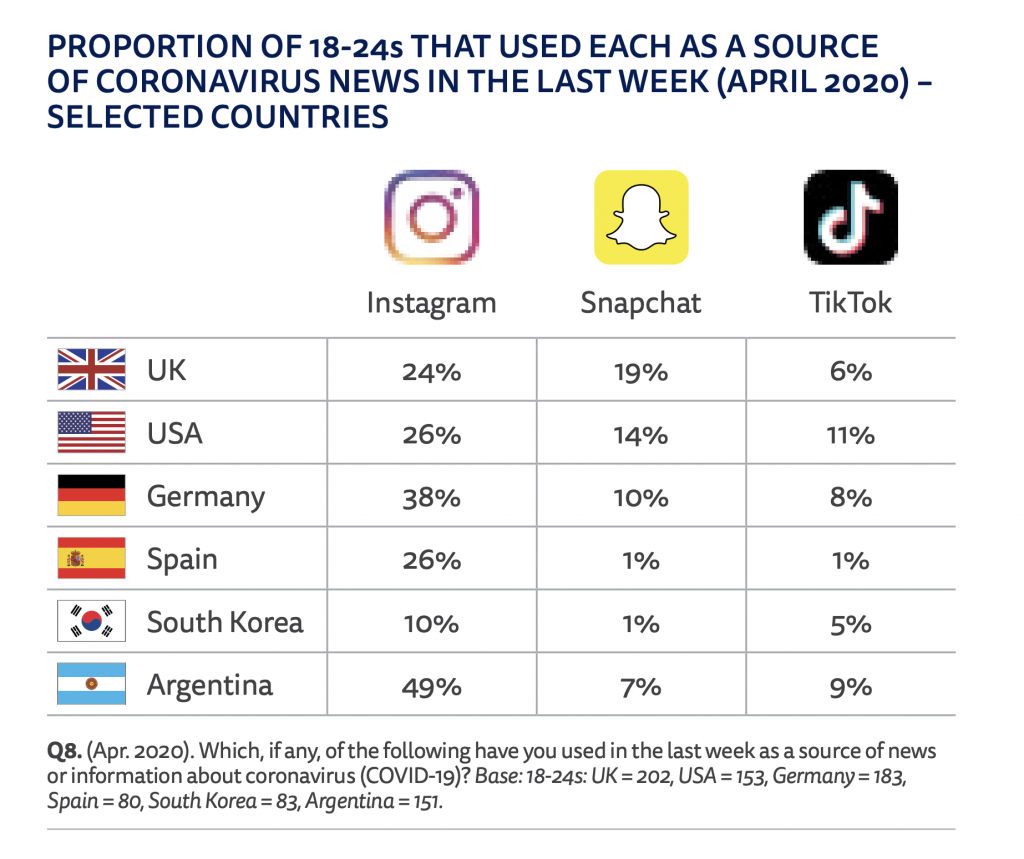
4. E-mail as a source of news
Another remarkable finding of Reuters’ study is that 21% of respondents in the United States access a news email weekly. That’d be one in five, while across countries, it’d be one in six.
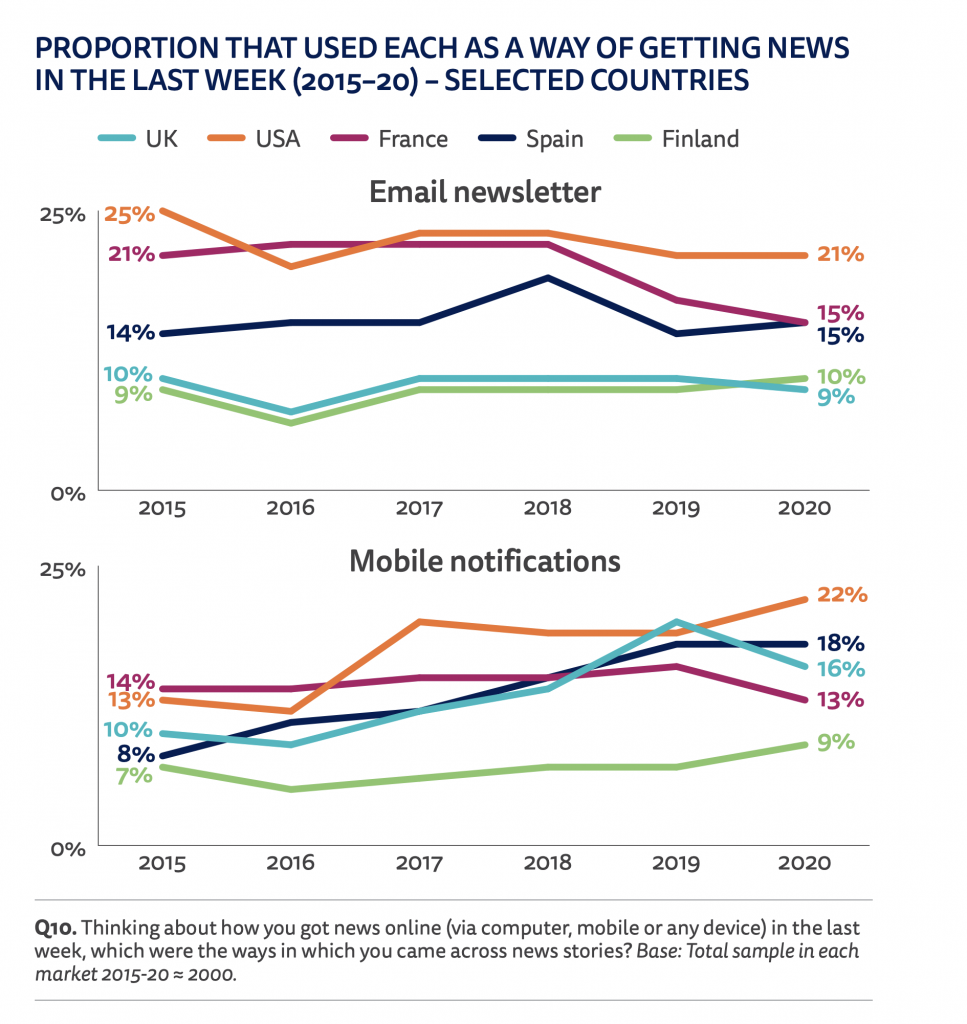
5. The rise of the podcast
Last but not least, podcasts continue to grow worldwide for one good reason they address news in depth. This is particularly good for Spotify (25% of users among the respondents) and Apple (20%).
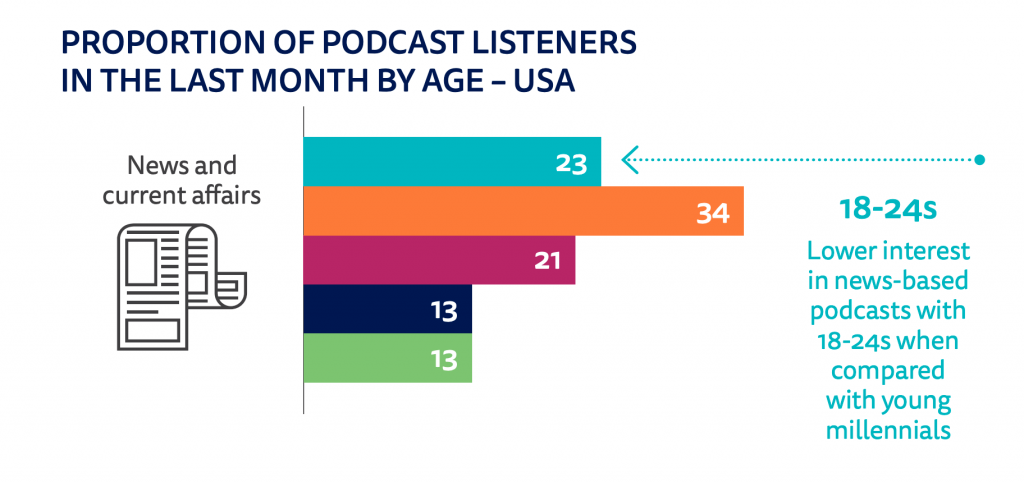
How has the Covid-19 pandemic affected the digital news industry?
There has definitely been an increase in news consumption, but the recess of advertising has affected publishers negatively as well.
How has the online news industry evolved during 2020?
There has been an increase in importance in journalism, making it highly valuable, trust has become a fundamental issue, as well as the rise of misinformation in social media. However, podcasts have been rising and email has become a source of news for many people as well.